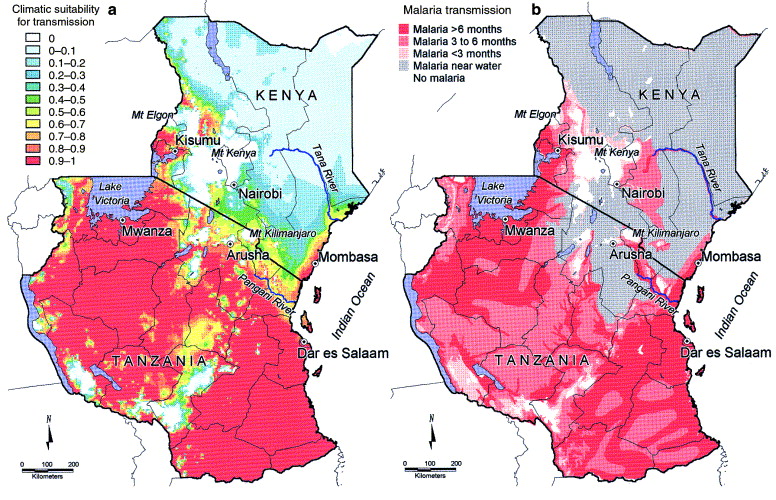KILIMANJARO MALARIA VISA VACCINE INFORMATION
kilimanjaro Malaria Visa Vaccine Information – is a practical article with indepth information on malaria prcautions, Visa information and vacines updates for travelers planning to visit Kilimanjaro.
A lot of preparation work is required before you depart on your epic Kilimanjaro adventure.
In this short article we discuss the essential kilimanjaro Malaria Visa Vaccine Information you need to get sorted in terms of visas, vaccinations and medications.
KILIMANJARO TOURIST VISA
Most people who visit Tanzania require a visa. As of January 2015, nationals of these countries require a visa:
Afghanistan; Albania; Algeria; Angola; Argentina; Armenia; Australia, Austria; Azerbaijan; Bahrain; Belarus; Belgium; Benin; Bhutan; Bolivia; Bosnia; Brazil; Bulgaria; Burkina Faso; Burma; Burundi; Cambodia; Canada; Cape Verde; Central African Republic; Chad; Chile; China (Peoples Republic of ); Colombia; Comoros; Congo; Congo (Democratic Republic of); Costa Rica; Cote D’Ivoire; Croatia; Cuba; Czech Republic; Denmark; Djibouti; Dominican Republic; Ecuador; Egypt; El-Salvador; Equatorial Guinea; Eritrea; Estonia; Fiji; Finland; France; Gabon; Georgia; Germany; Gibraltar; Greece; Guatemala; Guinea; Guinea-Bissau; Guyana; Haiti; Holland; Holy See; Honduras; Hungary; Iceland; Independent State of Samoa; India; Israel; Italy; Japan; Jordan; Kazakhstan; Korea (North & South); Kuwait; Kurdistan; Laos; Latvia; Liberia; Lithuania; Libya; Luxembourg; Macedonia; Malagasy; Maldives; Mauritania; Mauritius; Mexico; Moldova; Monaco; Mongolia; Mozambique; Myanmar; Nepal; Netherlands: New Zealand; Nigeria; Niger; Norway; Oman; Panama; Papua New Guinea; Paraguay; Peru; Philippines; Poland; Republic of Ireland; Portugal; Qatar; Romania; Russia; Rwanda; Sao Tome & Principe; Saudi Arabia; Senegal; Slovak Republic; Slovenia; South Africa; Spain; Suriname; Sweden; Switzerland; Syria; Taiwan; Tajikistan; Thailand; Togo; Tunisia; Turkey; Turkmenistan; Ukraine; United Arab Emirates; United Kingdom; United States of America; Uruguay; Uzbekistan; Venezuela; Vietnam; Yemen; Yugoslavia (all travelling documents issued by former SFR of Yugoslavia or by present Yugoslav Authorities)
It is recommended you get a Visa before you travel; however, it is possible to be granted a visa on entry in Tanzania. We recommend preparing your visa before departure.
Full details on visa requirements are available on the official Tanzanian embassy website for your country (Google: Tanzania embassy [your country]).
VACCINATIONS
There are a number of vaccinations that you should get before you travel. We recommend you check with your local GP or travel clinic which vaccinations you require. Below we have briefly outlined the main vaccinations you should get.
YELLOW FEVER
Yellow Fever is a viral disease that is spread by the bite of the female mosquito.
The Yellow Fever vaccination is now MANDATORY and you must carry your booklet as proof for having received the vaccine. The vaccine ought to have been taken atleast 10 Days prior to your travel. Read more about Yellow Fever
HEPATITIS A & B
It is a good idea to get vaccinated for both Hep A and B. Hep A is transmitted by direct person-to-person contact or through exposure to contaminated food or water, particularly uncooked foods like salad, shellfish and fruit, or ice in bottled water. You are at highest risk of Hep B if you are sexually active with the local population, work in the healthcare field or require medical treatment.
RABIES
Exposure to rabies is relatively low. If you plan to spend a lot of time in the country, particularly in rural areas, then it might be a good idea to get a rabies jab. We recommend consulting your doctor to understand the risk in more detail.
DIPHTHERIA/TETANUS/POLIO
It is a good idea to get a Diphtheria/Tetanus/Polio booster if you have not had one in the last 10 years.
TYPHOID
Typhoid is spread via contaminated water and food. It is worthwhile getting a typhoid inoculation before coming to Tanzania.
GENERAL MEDICAL CHECK-UP
In addition to these vaccinations you should have a general medical check-up before you leave for Tanzania. If you are in a fit and healthy condition you should be able to cope with most things that Kilimanjaro throws at you. But rather be safe than sorry.
A medical check-up is especially important for people who suffer from asthma or have any pre-existing medical conditions.
TREKKING AND TRAVEL INSURANCE
We highly recommend you get adequate trekking and travel insurance for your Kilimanjaro adventures. Make sure to keep your policy number and emergency contact numbers on you at all times.
We have written a detailed article on what type of trekking insurance to get here.
MALARIA
Malaria is an infection caused by the bite of the anopheles mosquito.
Tanzania is a very high-risk malaria country and therefore every precaution should be taken to avoid getting malaria. The highest risk zones are near the coast in places like Zanzibar, but inland towns like Moshi and Arusha are also relatively high risk Malaria areas (see map below).

The good news is that the anopheles mosquitos is not found at high altitude. You are unlikely to come into contact with this malaria-carrying mosquito over 2,000m. Therefore as a trekker your greatest risk of infection is just before and after your climb.
The anopheles mosquito is most active at night. Step one is to protect yourself against mosquito bites. Here are five things you can do to reduce the risk of being bitten:
- Wearing mosquito repellent (make sure it contains a high concentration of DEET – Repel make an excellent mosquito-repellent)
- Staying indoors between dusk and dawn
- Applying repellent to your skin, clothes and bedding
- Using a mosquito net
- Wearing long trousers and long-sleeve shirts that are light in colour (mosquitos are attracted to dark colours).
Taking anti-malarial drugs
The trouble with Malaria is that it only takes one bite from an infected mosquito to contract the disease.
The only really sure way of avoiding infection is by taking anti-malarial drugs or prophylaxis.
There are various anti-malarial drugs on the market and we recommend consulting your GP to decide which is best for you. The type of drug depends on many factors such as length of stay, your age and the degree to which resistance to the drug has occurred in the region you are travelling to.
The three main drugs are Mefloquine (brand names: Lariam, Mephaquin or Mefliam), Doxycycline and Malarone.
Larium is a popular anti-malarial drug, although many people complain of bad side-effects like hallucinations and nightmares. The drug is taken once a week and a full course needs to be taken to ensure effective use. Travellers can test the drug a few weeks before departing to see if they suffer any side-effects. Some research has suggested that Larium predisposes people to acute mountain sickness (AMS). It also has side effects that mimic those of AMS making diagnosis difficult.
Malarone is a more expensive drug but appears to come with less potential side-effects.
We recommend consulting your doctor before deciding on an appropriate malaria prophylaxis for Kilimanjaro
Still have questions on kilimanjaro Malaria Visa Vaccine Information or any other administrative issues for Kilimanjaro? Please leave a comment below or email Us.


